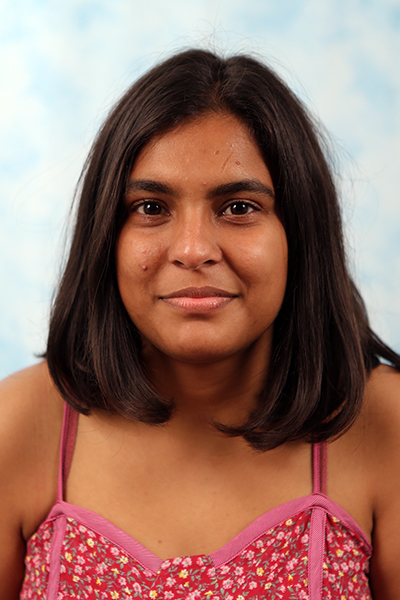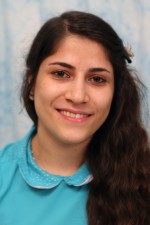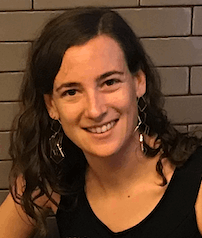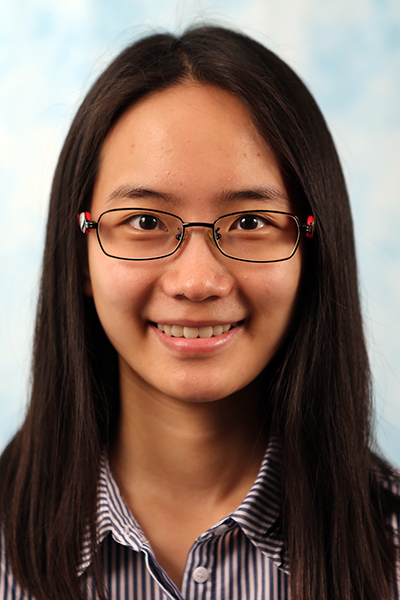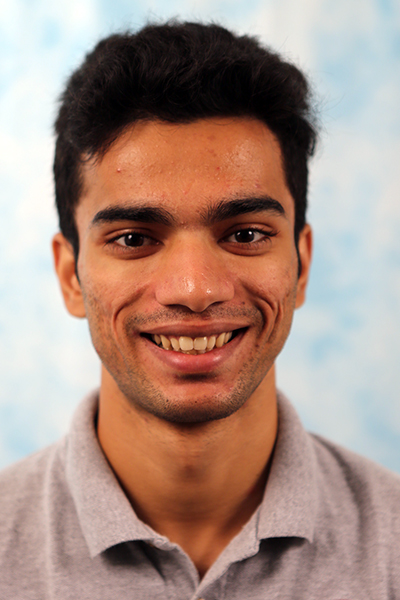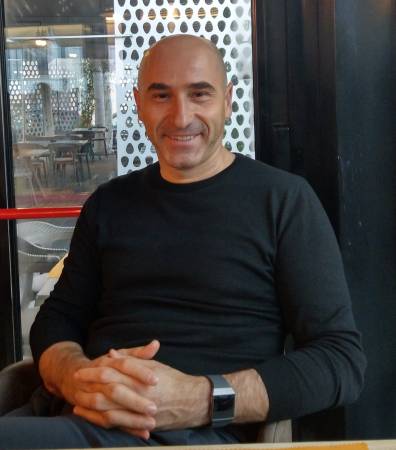Carnegie Mellon University
Vaibhav (Vai) Viswanathan – MSR Thesis Talk
Zoom Link: https://cmu.zoom.us/j/2112607862 Title: Bitwise Trajectory Elimination: An Efficient Method for Filtering Trajectory Libraries for Quadrotor Navigation Abstract: Quadrotor flight in unknown environments is challenging due to the limited range of perception sensors, state estimation drift, and limited onboard computation. In this work, we tackle these challenges by proposing an efficient, reactive planning approach. We introduce [...]
Carnegie Mellon University
Xi (Sandy) Sun – MSR Thesis Talk
Zoom link: https://cmu.zoom.us/j/94541819048 Title: Visual-Inertial Source Localization for Co-Robot Rendezvous Abstract: We aim to enable robots to visually localize a target person through the aid of an additional sensing modality -- the target person's 3D inertial measurements. The need for such technology may arise when a robot is to meet a person in [...]
Carnegie Mellon University
Harsh Agarwal – MSR Thesis Talk
Zoom Link: https://cmu.zoom.us/j/99544484313 Title DeepBLE - Generalizing RSSI based Localization Across Different Devices Abstract Accurate smartphone localization ( < 1-meter error) for indoor navigation using only RSSI received from a set of BLE beacons remains a challenging problem, due to the inherent noise of RSSI measurements. To overcome the large variance in [...]
Carnegie Mellon University
Xia Chen – MSR Thesis Talks
ZOOM Link: https://cmu.zoom.us/j/93785335144 Title: Combining Semantic and Geometric Understanding for Modern Visual Recognition Tasks Abstract: For autonomous driving perception, visual data, such as camera image and LiDAR point cloud, consists of two aspects: semantic feature and geometric structure. While usually studied separately, these two properties can be combined and jointly used by a unified framework. [...]
Carnegie Mellon University
Himanshi Yadav – MSR Thesis Talk
Zoom Link: https://cmu.zoom.us/j/96397153508 Title: A Comprehensive Study of Unsupervised Classification Techniques for Hyperspectral Datasets Abstract: Unsupervised learning and in this specific research, clustering regional composition in hyperspectral images, poses significant challenges in the fields of machine learning and remote sensing. Hyperspectral images capture the spectral information in many wavelengths, as opposed to typical images that [...]
Carnegie Mellon University
Alan Zhao – MSR Thesis Talk
Zoom Link: https://cmu.zoom.us/j/98144379626 Title Learning Precise and Task-oriented Grasps for Robotic Assembly Abstract Robust, precise, and task-oriented grasp planning is vital for autonomous robotic assembly. It requires reasoning about the object geometry and preconditions of a task so as to properly grasp an object and complete the down-stream tasks. However, achieving such [...]
Carnegie Mellon University
Task-Driven Modular Networks for Zero-Shot Compositional Learning
Zoom Link Abstract: One of the hallmarks of human intelligence is the ability to compose learned knowledge into novel concepts which can be recognized without a single training example. In contrast, current state-of-the-art methods require hundreds of training examples for each possible category to build reliable and accurate classifiers. To alleviate this striking difference in [...]
Bio-inspired depth sensing using computational optics
Virtual Seminar: https://cmu.zoom.us/j/249106600 Abstract: Jumping spiders rely on accurate depth perception for predation and navigation. They accomplish depth perception, despite their tiny brains, by using specialized optics. Each principal eye includes a multitiered retina that simultaneously receives multiple images with different amounts of defocus, and distance is decoded from these images with seemingly little [...]
Carnegie Mellon University
Active Vision: Autonomous Aerial Cinematography with Learned Artistic Decision-Making
Zoom Link Abstract: Aerial cinematography is revolutionizing industries that require live and dynamic camera viewpoints such as entertainment, sports, and security. Fundamentally, it is a tool with immense potential to improve human creativity, expressiveness, and sharing of experiences. However, safely piloting a drone while filming a moving target in the presence of obstacles is immensely [...]
Carnegie Mellon University
Efficient Robot Decision-Making for Achieving Multiple Independent Tasks
Zoom Link Abstract: We focus on robotics applications where a robot is required to accomplish a set of tasks that are partially observable and evolve independently of each other according to their dynamics. One such domain that we target in this work is decision-making for a robot waiter waiting tables at a restaurant. The robot [...]
Image to LiDAR Map Registration using Late Feature Projection
Zoom Link Abstract: Accurate localization is essential for autonomous operation in many problem domains. This is most often performed by comparing LiDAR scans collected in real-time to a HD point cloud based map. While this enables centimeter-level accuracy, it depends on an expensive LiDAR sensor at run time. Recently, efforts have been underway to reduce [...]
Carnegie Mellon University
Vision with Small Baselines
Zoom Link Abstract: 3D sensing with portable imaging systems is becoming more and more popular in computer vision applications such as autonomous driving, virtual reality, robotics manipulation and surveillance, due to the decreasing expense and size of RGB cameras. Despite the compactness and portability of the small baseline vision systems, it is well-known that the [...]
Carnegie Mellon University
Provably Constant-time Motion Planning
Zoom Link Abstract: In manufacturing and warehouse scenarios, robots often perform recurring manipulation tasks in structured environments. Fast and reliable motion planning is one of the key elements that ensure efficient operations in such environments. A very common example scenario is of manipulators working at conveyor belts, where they have limited time to pick moving [...]
Carnegie Mellon University
Humans In Their Natural Habitat: Training AI to Understand People
Zoom Link Abstract: Computer vision has a great potential to help our daily lives by searching for lost keys, watering flowers or reminding us to take a pill. To succeed with such tasks, computer vision methods need to be trained from real and diverse examples of our daily dynamic scenes. First, we need to give [...]
Task-specific Vision DNN Models and Their Relation for Explaining Different Areas of the Visual Cortex
Virtual VASC Seminar: https://cmu.zoom.us/j/249106600 Abstract: Deep Neural Networks (DNNs) are state-of-the-art models for many vision tasks. We propose an approach to assess the relationship between visual tasks and their task-specific models. Our method uses Representation Similarity Analysis (RSA), which is commonly used to find a correlation between neuronal responses from brain data and models. [...]
Carnegie Mellon University
A Theory of Fermat Paths for Non-line-of-sight Shape Reconstruction
Zoom Link Abstract: Traditionally, computer vision systems and algorithms, such as stereo vision, and shape from shading, have been developed to mimic human vision. As a consequence, a lot of these systems operate under constraints that we take for granted in human vision. An example of such a constraint is that the scene of interest [...]
Learning Contextual Actions for Heuristic Search-Based Motion Planning
Zoom Link Abstract: Heuristic search-based motion planning can be computationally costly in large state and action spaces. In this work we explore the use of generative models to learn contextual actions for successor generation in heuristic search. We focus on cases where the robot operates in similar environments, i.e. environments drawn from some underlying distribution. [...]
End-to-end Generative 3D Human Shape and Pose Models and Active Human Sensing
Virtual VASC Seminar: https://cmu.zoom.us/j/249106600 Title: End-to-end Generative 3D Human Shape and Pose Models and Active Human Sensing Abstract: I will review some of our recent work in 3d human modeling, synthesis, and active vision. I will present our new, end-to-end trainable nonlinear statistical 3d human shape and pose models of different resolutions (GHUM and GHUMLite) as [...]



